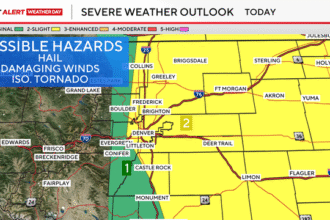If you’re an educator, parent, or student in Colorado, you’ve likely encountered questions like Which of the following is true about the Colorado Academic Standards? Understanding these standards is essential for ensuring student success, curriculum development, and statewide accountability. The Colorado Academic Standards (CAS) are more than just educational guidelines—they are a foundational framework that outlines what every student should know and be able to do at each grade level.
Adopted in 2009 and periodically updated, the standards aim to prepare students for college, careers, and life by focusing on critical thinking, creativity, and practical application of knowledge. These standards span multiple subjects, including mathematics, English language arts, science, and social studies. They are designed not only to meet state and national expectations but also to reflect the values and goals of Colorado’s communities.
This article provides a comprehensive look at the CAS, answering key questions and clarifying misconceptions. Whether you’re looking to align your teaching strategy, support your child’s learning, or understand education policy, this guide will help you navigate exactly which of the following is true about the Colorado Academic Standards and why they matter.
Which of the following is true about the Colorado Academic Standards?
The Colorado Academic Standards are state-defined benchmarks for what students should know and do at each grade level. They promote readiness, equity, and critical thinking.
Why the Colorado Academic Standards Matter: Purpose, Equity, and Impact
The Colorado Academic Standards (CAS) are a guiding framework for K–12 public education across the state. Designed to focus on college and career readiness, the standards establish clear and consistent expectations for student learning in all major subject areas. Developed through collaboration among educators, community leaders, and academic experts, the standards aim to promote rigorous instruction and real-world relevance.
Each subject—from math and science to language arts and social studies—has its own grade-level expectations. These benchmarks build upon one another from early education through high school, helping ensure students acquire the knowledge and skills they need to succeed at the next level. It’s important to note that CAS is not a set curriculum; instead, it outlines what students should learn while allowing educators to decide how to teach those concepts.
A key goal of the CAS is educational equity. By establishing uniform academic expectations across districts, the standards ensure that all students, regardless of location or background, receive access to a high-quality education. Additionally, assessments aligned with the CAS help educators track progress and adjust instruction accordingly. To truly understand which of the following is true about the Colorado Academic Standards, one must view them as the bedrock of Colorado’s equitable, consistent, and future-focused education.
How the Colorado Academic Standards Are Structured and Implemented
The Colorado Academic Standards are thoughtfully designed to guide student learning from kindergarten through 12th grade. Their structure ensures consistency while allowing educators to deliver instruction with flexibility.
Grade-Level Expectations by Subject
The Colorado Academic Standards are meticulously organized by both subject and grade level. This ensures that students experience a steady, developmental progression in learning, moving from foundational concepts in the early years to more advanced, analytical skills as they approach graduation. Each subject—such as math, English language arts, science, and social studies—features benchmarks tailored to students’ cognitive and developmental stage at each grade.
Not a Curriculum, But a Framework
It’s important to understand that the CAS is not a prescribed curriculum. Instead, they function as a framework outlining what students are expected to know and be able to do. Local districts and schools can design their curricula, allowing educators to choose resources and teaching methods that best suit their students while aligning with state expectations.
Teacher Flexibility Within a Unified System
While the standards provide consistency across Colorado, they also allow teachers flexibility in instructional delivery. This ensures educators can tailor their teaching strategies to meet the unique needs of their classrooms while maintaining a shared vision for student success.
Periodic Reviews and Updates
To stay current with educational research and evolving workforce demands, the CAS is reviewed and revised every six years. This cycle ensures the standards reflect the latest knowledge and best practices in education.
Assessment and Accountability Measures
Statewide assessments aligned with the CAS provide valuable insights into student progress. These tools support data-driven decision-making, helping educators refine instruction and maintain accountability across all districts.
Features That Define the Colorado Academic Standards
The Colorado Academic Standards (CAS) are more than just educational benchmarks—they reflect a thoughtful design to ensure all students in the state receive a high-quality, future-focused education. These standards are defined by several distinctive features that set them apart from other state and national frameworks.
Clarity and Specificity: Each standard is written in clear, direct language, making it easy for teachers to understand what students need to learn. Parents also benefit from this transparency, as they can better support their children’s academic progress.
Vertical Alignment: The standards are structured to build logically from one grade to the next. This helps students develop foundational knowledge and skills before progressing to more advanced concepts.
College and Career Readiness: CAS is intentionally aligned with postsecondary expectations. By focusing on applicable, real-world skills, it ensures students are prepared for higher education and the workforce.
Cross-Disciplinary Emphasis: The standards encourage the development of skills such as collaboration, communication, and critical thinking, which are essential across all subjects and career paths.
Inclusivity and Equity: Designed with all learners in mind, the CAS aims to eliminate disparities by holding every district to consistent academic expectations.
Local Flexibility: While statewide benchmarks are clearly defined, schools and educators can choose instructional methods and resources best suited to their students’ needs.
Why the Colorado Academic Standards Matter to Educators and Families
The Colorado Academic Standards (CAS) support educators and families. They offer teachers a consistent and reliable framework to design lesson plans, measure student progress, and align with state education requirements. These standards help educators structure instruction so students build skills sequentially and master grade-level expectations before advancing. The CAS also fosters professional collaboration and instructional consistency by providing shared goals across districts.
Families benefit from the clarity and transparency that the standards provide. Parents can easily track what their children are expected to learn and find ways to support them at home. The uniformity of the standards across Colorado simplifies transitions between schools or districts, ensuring students stay on track academically.
Additionally, CAS-aligned assessments hold schools accountable and promote continual improvement. Understanding which of the following is true about the Colorado Academic Standards empowers families to become active, informed participants in their child’s education.
Comparing Colorado Academic Standards to Other States’ Benchmarks
Colorado’s approach to academic standards reflects a thoughtful blend of national influence and local priorities. Here’s how the Colorado Academic Standards (CAS) compare to those in other states:
- Incorporation of National Frameworks: The CAS integrates essential elements from national models like the Common Core State Standards and the Next Generation Science Standards. This helps ensure that Colorado students learn skills and content aligned with broader educational goals across the U.S.
- Distinct State-Led Development: Unlike federally enforced mandates, Colorado’s standards are developed at the state level with broad community input. This gives districts more flexibility while promoting rigorous learning goals tailored to local values and student needs.
- Strong Regional Benchmarking: Colorado consistently performs well compared to surrounding states. In areas such as mathematics, science, and reading, the CAS emphasizes critical thinking and application-based learning, which supports strong performance on regional and national assessments.
- Innovation Through Adaptation: Rather than reinventing the wheel, CAS thoughtfully borrows from proven education practices while refining them to fit Colorado’s educational landscape. This includes prioritizing cross-disciplinary learning, real-world application, and equity across diverse student populations.
Final Remarks
One must understand their foundational role in public education to honestly answer the question which of the following is true about the Colorado Academic Standards. These standards establish a unified vision for what students should know and be able to do, ensuring consistency across all Colorado schools. At the same time, they provide flexibility for educators to tailor instruction based on local needs and student diversity. CAS promotes academic equity, future readiness, and instructional clarity, benefiting teachers and families. For parents, the standards offer a clear roadmap of learning expectations, while for educators, they serve as a reliable guide for curriculum planning. Ultimately, the CAS helps deliver a balanced, high-quality education to all students in Colorado.
FAQ’s
Are the Colorado Academic Standards mandatory?
Yes, all public schools in Colorado are legally required to align their instruction with the Colorado Academic Standards. This ensures a consistent, high-quality education across all districts.
Do CAS dictate how teachers must teach?
No, the CAS defines what students should learn but does not prescribe teaching methods. Educators retain complete flexibility in delivering instruction to meet those learning goals.
How often are the CAS updated?
The Colorado Department of Education reviews and revises the standards every six years. This process keeps the standards relevant, research-based, and aligned with current educational needs.
Do CAS align with national standards?
Yes, while uniquely developed for Colorado, the CAS includes elements from national frameworks like Common Core and Next Generation Science Standards to stay competitive.
Can parents access the standards?
Absolutely. All CAS documents are freely available to the public and can be downloaded from the Colorado Department of Education’s official website for easy access and reference.










